Welcome to the A- Z of Featured Green Travel Destinations – with tips on where to visit, stay, what to experience and how to travel sustainably.
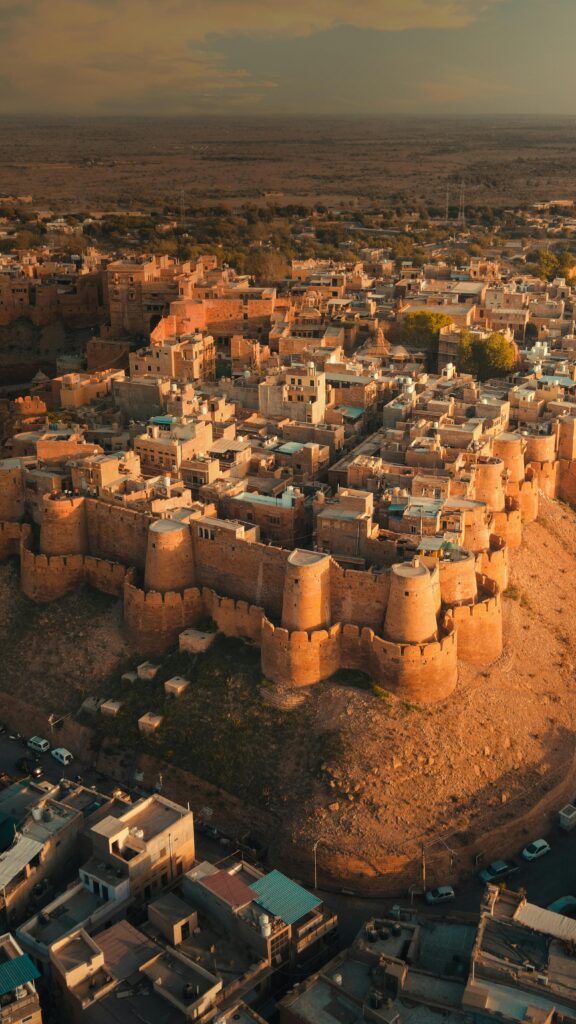
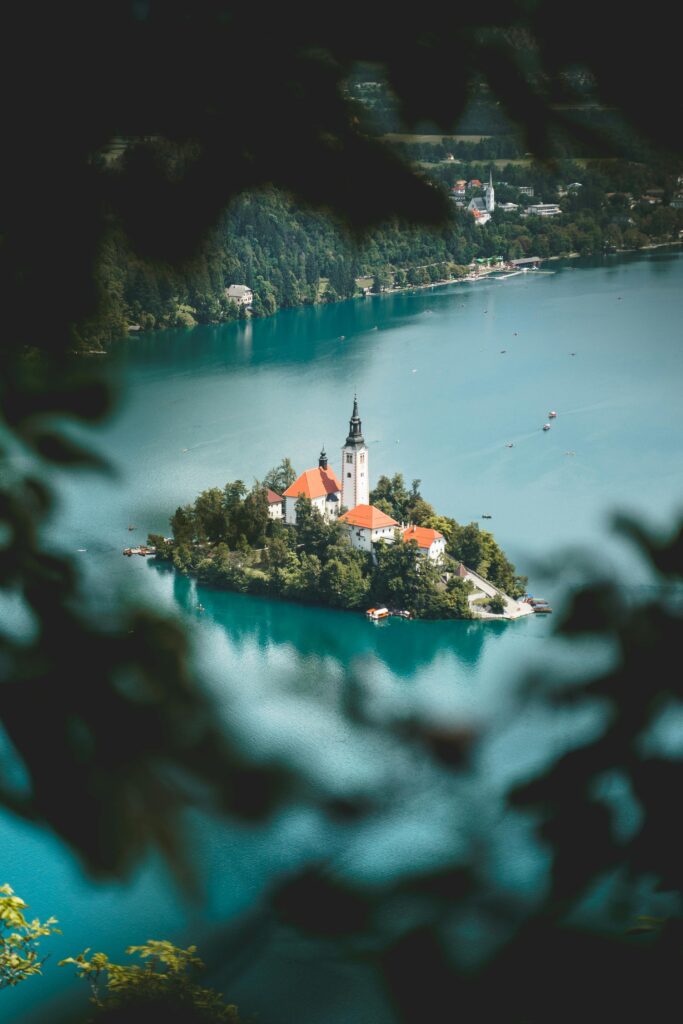
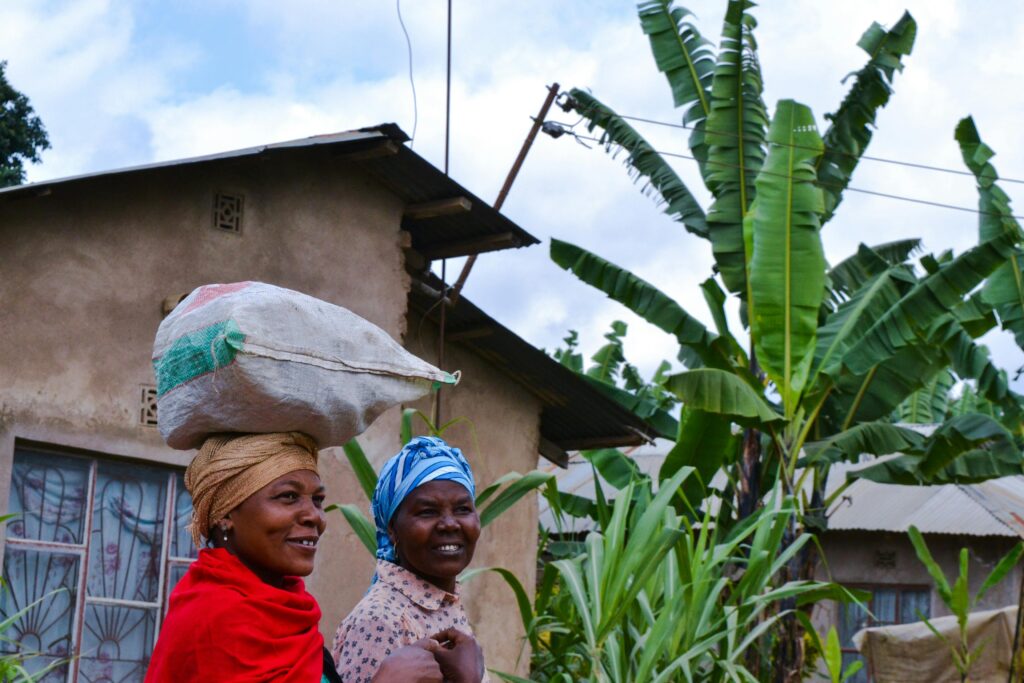


Q: Queenstown, New Zealand
Green Travel Guide to Queenstown, New Zealand
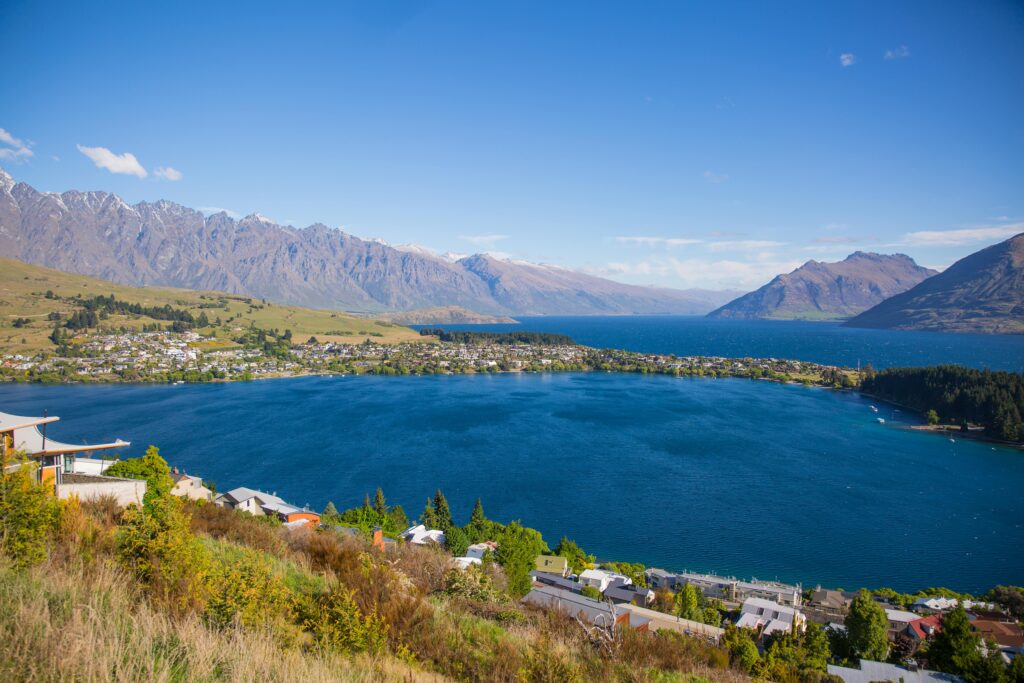
Nestled in the heart of the Southern Alps, Queenstown is not only known as New Zealand’s adventure capital, but it’s also a destination dedicated to sustainability and environmental conservation. Surrounded by breathtaking mountains, clear lakes, and lush forests, Queenstown is committed to preserving its natural beauty while offering travellers a wide range of eco-friendly experiences.
This Green Travel Destination Guide to Queenstown will highlight the best sustainable travel options, eco-friendly accommodations, activities, and tips to help you enjoy this stunning destination while reducing your environmental footprint.
Getting to Queenstown: Sustainable Travel Options
By Plane:
Queenstown has an international airport, Queenstown Airport, that connects to major cities in New Zealand and Australia. While flying is often necessary to reach this remote destination, there are steps you can take to reduce your carbon impact:
- Carbon Offset Programs: Look for airlines that offer carbon offset programs to compensate for your flight emissions.
- Direct Flights: Choose direct flights to reduce fuel consumption.
- Eco-Friendly Airport Practices: Queenstown Airport has adopted sustainable practices, including energy-efficient buildings and waste reduction initiatives.
By Bus:
For a more eco-friendly option, consider traveling to Queenstown by bus from major cities like Christchurch, Dunedin, or Wanaka. Several bus companies, such as InterCity, offer affordable and environmentally friendly services. Traveling by bus is a great way to reduce your carbon footprint and enjoy scenic views of New Zealand’s landscapes.
By Car:
For those who prefer to drive, renting an electric vehicle (EV) is becoming easier in New Zealand. Queenstown is steadily increasing its network of EV charging stations, allowing you to explore the region sustainably. Consider renting an electric car or hybrid vehicle to minimise emissions while navigating Queenstown and surrounding areas.
Sustainable Transportation in Queenstown
Queenstown offers several options for getting around sustainably, ensuring that you can explore the region without harming its pristine environment.
Public Transport:
Queenstown has a well-connected public transport system, including buses that run throughout the town and the surrounding area. The buses are energy-efficient and provide an affordable way to get around. Many buses are designed with eco-friendly features, such as low emissions and energy-efficient engines.
Eco-tip: Use public transport or opt for shuttle buses for airport transfers to minimise your carbon footprint.
Cycling:
Queenstown is a bike-friendly destination with dedicated cycling paths and stunning mountain views. Rent a bike and explore the town and surrounding areas sustainably. You can rent e-bikes for an easier ride and venture to nearby places like Arrowtown, or take a scenic bike ride along the Queenstown Trail.
Eco-tip: Use local bike-sharing programs or rent a bike from eco-friendly rental shops.
Walking:
Queenstown’s compact size and stunning scenery make it perfect for walking. Stroll through the Queenstown Gardens, or walk to the nearby Lake Wakatipu for incredible views. Walking is one of the most sustainable and rewarding ways to explore the area, all while reducing your environmental impact.
Eco-tip: Choose walking over driving whenever possible to minimise your carbon emissions.
Electric Scooters:
Electric scooters are available for rent throughout Queenstown, offering an eco-friendly way to get around town. These scooters are ideal for short trips, providing an effortless and low-emission way to explore local attractions.
Sustainable Accommodations in Queenstown
Queenstown is home to a variety of eco-conscious accommodations that focus on sustainability and environmental stewardship. Here are some eco-friendly options to consider:
1. EcoScapes
EcoScapes offers luxury glamping accommodations with minimal environmental impact. Located just outside Queenstown, this eco-lodge uses sustainable energy sources, such as solar power, and supports eco-friendly waste management practices. It’s a perfect blend of comfort and nature, allowing you to experience the outdoors in a sustainable way.
2. Matakauri Lodge
Nestled on the shores of Lake Wakatipu, Matakauri Lodge is an environmentally responsible property offering stunning views and luxurious amenities. The lodge integrates sustainability into its operations, with energy-efficient heating, water-saving initiatives, and an emphasis on local, organic ingredients for its restaurant.
3. The Rees Hotel
The Rees Hotel is a luxury accommodation option that embraces sustainability, featuring energy-efficient lighting, water conservation systems, and a strong commitment to reducing its carbon footprint. The hotel also has a green transport program, including a fleet of hybrid vehicles for guests to use.
4. The Queenstown Park Boutique Hotel
This eco-friendly boutique hotel is known for its commitment to sustainability. The hotel operates on a green philosophy, using locally sourced materials, energy-efficient heating systems, and eco-friendly toiletries. The property is also centrally located, making it easy to explore the town on foot or by public transport.
5. Trelawn Place
Located in a secluded area with views of the Remarkables Mountains, Trelawn Place is a peaceful eco-lodge that offers a relaxing stay surrounded by nature. The property uses solar panels for power and focuses on sustainable water usage, waste reduction, and eco-friendly landscaping practices.
Sustainable Activities and Attractions in Queenstown
Queenstown offers a variety of eco-friendly activities that allow you to explore its stunning landscapes and natural beauty while supporting sustainable tourism.
1. Lake Wakatipu
A trip to Queenstown wouldn’t be complete without experiencing the stunning Lake Wakatipu. You can explore the lake by electric boat, reducing your environmental impact. Enjoy a scenic cruise with minimal carbon emissions while soaking in the dramatic mountain views.
Eco-tip: Choose eco-friendly boat tours that operate with low emissions or sail on non-motorised boats such as kayaks and paddleboards.
2. Hiking and Trekking
Queenstown is a hiker’s paradise, with numerous trails that cater to all levels. The Routeburn Track and Ben Lomond Track offer stunning vistas of the surrounding mountains and forests. These trails promote sustainable tourism practices, and hikers are encouraged to follow leave-no-trace principles.
Eco-tip: Stick to designated trails to minimise your impact on fragile ecosystems and pack out all your waste.
3. Green Adventures with Sustainable Operators
For eco-conscious thrill-seekers, Queenstown offers a range of sustainable adventure operators. Activities like bungee jumping, skydiving, and jet boating are available with companies that minimise their environmental footprint through carbon offset programs and eco-friendly equipment.
4. Visit the Queenstown Gardens
The Queenstown Gardens is an eco-friendly spot in the heart of the city. It’s a perfect place for a leisurely walk or picnic surrounded by native plants and trees. The park is maintained sustainably, with a focus on native flora and low-maintenance landscaping techniques.
5. Wine Tasting in Gibbston Valley
Just outside Queenstown, Gibbston Valley is home to sustainable wineries that focus on organic farming and eco-friendly practices. Take a tour through the vineyards, where you’ll learn about sustainable wine production and enjoy tastings of local wines produced with minimal environmental impact.
Eco-tip: Choose wineries that focus on organic and sustainable farming practices for a more eco-conscious experience.
Sustainable Dining and Shopping
Queenstown is also home to a range of eco-conscious dining and shopping experiences, where sustainability is at the forefront.
1. Rata Restaurant
Rata offers a menu that focuses on using local and seasonal ingredients. The restaurant emphasizes sustainable sourcing, and many of the ingredients come from nearby farms practicing organic and environmentally friendly farming methods.
2. The Cow Restaurant
Located in the heart of Queenstown, The Cow is a popular restaurant that sources locally grown ingredients and supports sustainable food practices. It’s an excellent choice for eco-conscious diners looking to enjoy delicious food while supporting the local economy.
3. Local Farmers’ Markets
Queenstown’s farmers’ markets are a great way to sample local produce, crafts, and organic products while supporting small-scale, sustainable farmers. Many of these markets promote zero-waste practices and focus on organic and eco-friendly goods.
4. Sustainable Shopping
Queenstown offers several eco-friendly shops that sell products made from sustainable materials, such as recycled fabrics, organic cotton, and fair-trade goods. Look out for boutiques that specialise in eco-friendly fashion and locally crafted goods.
Green Travel Tips for Queenstown
- Offset Your Carbon Emissions: Consider offsetting your flights through certified programs.
- Support Local, Sustainable Businesses: Choose restaurants, shops, and tour operators that prioritise sustainability and support local artisans and farmers.
- Pack Light: Traveling with minimal luggage reduces your carbon footprint and allows you to move around easily using sustainable transport options.
- Follow Leave-No-Trace Principles: Respect nature by following sustainable practices while hiking, camping, and enjoying the outdoors.
Queenstown as a Green Destination
Queenstown is the perfect destination for eco-conscious travellers seeking a mix of adventure, relaxation, and sustainability. Whether you’re hiking through pristine nature reserves, enjoying local cuisine, or exploring the surrounding landscapes by sustainable transport, Queenstown offers a range of experiences that allow you to enjoy the beauty of New Zealand while minimising your environmental impact. By embracing sustainable travel practices, you can help preserve Queenstown’s breathtaking landscapes.

R: Rajasthan, India
Green Travel Guide to Rajastan

Rajasthan, often known for its grand palaces, colourful culture, and arid landscapes, is making strides toward eco-tourism and sustainability. This vast state in the northwestern part of India has not only rich history and stunning architecture but also a growing commitment to sustainable travel. From eco-lodges in the desert to conservation efforts in its wildlife sanctuaries, Rajasthan offers unique eco-friendly experiences that allow travellers to connect with both its culture and nature.
Here’s a Green Travel Destination Guide to Rajasthan, featuring sustainable transportation options, eco-friendly accommodations, activities, and travel tips for exploring the “Land of Kings” while reducing your environmental impact.
Getting to Rajasthan: Sustainable Travel Options
By Train:
Train travel in India is one of the most environmentally friendly options for covering long distances. The Indian Railways network is extensive and connects Rajasthan’s major cities, including Jaipur, Udaipur, Jodhpur, and Jaisalmer, with the rest of India. Opting for express trains or super-fast trains helps reduce your carbon footprint compared to air travel.
Eco-tip: Choose trains that operate with energy-efficient engines or solar-powered stations in Rajasthan. Many stations are becoming more sustainable, and traveling by train is an eco-conscious option.
By Car:
Renting an electric vehicle (EV) or a hybrid car is an ideal way to travel around Rajasthan sustainably. Though electric car infrastructure is still developing in India, Rajasthan is increasing its availability of charging stations in cities like Jaipur and Udaipur. If you must drive, choose an EV or opt for fuel-efficient vehicles to reduce your carbon footprint.
Eco-tip: For a slower travel experience, consider taking the public bus system for local travel. It’s affordable and an eco-friendly option to explore smaller towns and cities.
Sustainable Transportation in Rajasthan
Once in Rajasthan, there are several eco-friendly transportation options to reduce your environmental impact while enjoying the state’s beautiful landscapes.
Eco-Friendly Rickshaws and Tuk-Tuks:
In cities like Jaipur, Udaipur, and Jodhpur, you’ll find eco-friendly electric tuk-tuks or rickshaws. These are increasingly being used to provide a greener alternative to traditional fuel-powered rickshaws. They are affordable, practical, and a fun way to explore the bustling streets while minimising air pollution.
Eco-tip: Opt for electric tuk-tuks when possible, especially in urban areas with heavy traffic.
Cycling:
For an even more eco-conscious way to travel, consider renting a bicycle. Many cities in Rajasthan, like Udaipur and Jaipur, offer bicycle tours for visitors to explore key sites while reducing environmental impact. Cycling is not only an eco-friendly way to see the sights but also allows you to connect more intimately with the local culture and environment.
Eco-tip: Look for eco-cycling tours that include a focus on sustainability and local culture.
Camel Rides:
Rajasthan’s desert landscapes offer an iconic way to explore its vast sand dunes and rural villages via camel safaris. Unlike motorised vehicles, camel rides have minimal environmental impact and offer a traditional and slow travel experience, especially in the Thar Desert near Jaisalmer.
Eco-tip: Choose tours that focus on animal welfare and ethical practices, ensuring that camels are well-cared for during the journey.
Sustainable Accommodations in Rajasthan
Rajasthan has several eco-conscious hotels, resorts, and lodges that blend luxury with sustainability. Whether you want to stay in a desert camp, a traditional haveli, or a heritage hotel, there are plenty of sustainable options to choose from.
1. The Tree of Life Resort & Spa (Jaipur)
A perfect blend of luxury and sustainability, The Tree of Life offers eco-friendly accommodations with a focus on nature conservation. This resort uses solar power, sustainable water management, and eco-friendly materials for construction. Its location amidst nature ensures minimal environmental disturbance.
2. The Serai (Jaisalmer)
The Serai, located near the desert city of Jaisalmer, is a luxury tented camp that focuses on sustainability. The camp uses solar energy, recycles water, and has a commitment to preserving the local environment. It also offers desert safaris, allowing guests to explore the surrounding landscape with minimal environmental impact.
3. Shivir Hotel (Udaipur)
Located on the shores of Lake Pichola in Udaipur, Shivir Hotel is an eco-conscious hotel that uses rainwater harvesting, solar energy, and biodegradable materials for its operations. The hotel offers a peaceful environment and blends sustainability with cultural authenticity.
4. Mihir Garh (Jodhpur)
Located near Jodhpur, Mihir Garh is a luxury eco-lodge offering a rustic and eco-friendly experience in the Thar Desert. The property uses solar panels, local construction materials, and natural water management systems, ensuring that guests experience both luxury and sustainability.
Sustainable Activities and Attractions in Rajasthan
Rajasthan offers a wide range of eco-friendly activities that let you explore the region’s natural beauty and cultural heritage without harming the environment.
1. Camel Safaris in the Thar Desert
A visit to Rajasthan isn’t complete without a camel safari. The Thar Desert near Jaisalmer is the perfect place to explore by camel, offering a unique way to experience the vast dunes and the local villages. Choose eco-conscious tours that follow sustainable practices and ensure animal welfare.
2. Visit Keoladeo National Park (Bharatpur)
A UNESCO World Heritage site, Keoladeo National Park is one of the most important bird sanctuaries in India. The park offers eco-friendly walking tours and bicycle rides, providing a sustainable way to explore the rich biodiversity of the area, including migratory birds, reptiles, and flora.
Eco-tip: Visit during the winter months to avoid overcrowding and ensure minimal disturbance to wildlife.
3. Explore Rural Rajasthan through Cycling Tours
For those wanting a more authentic travel experience, cycling tours through rural Rajasthan are a fantastic way to explore the lesser-known parts of the state. You’ll pass through villages, explore forts and temples, and interact with locals. These tours often emphasise sustainability by promoting local artisans and farms.
4. Eco-Tours in Rajasthan’s Forts and Palaces
Rajasthan is famous for its magnificent forts and palaces. Many of these historic sites, including Amber Fort and Mehrangarh Fort, have implemented sustainable practices such as water harvesting systems, solar energy, and recycling programs. When visiting, choose guides and operators who promote conservation efforts.
5. Wildlife Safaris in Ranthambore National Park
Ranthambore National Park is home to the iconic Bengal tiger and offers an eco-friendly way to explore wildlife. The park runs sustainable safari tours that highlight wildlife conservation and eco-friendly practices while allowing travellers to witness the diverse flora and fauna of the region.
Eco-tip: Opt for safari tours that limit vehicle emissions and use electric or hybrid vehicles.
Sustainable Dining and Shopping in Rajasthan
Rajasthan is known for its rich culinary heritage, and many restaurants and markets are now embracing sustainability.
1. Anokhi Café (Jaipur)
Anokhi Café in Jaipur is a popular choice for those looking to enjoy organic, locally sourced food. The café champions sustainability by using organic produce and eco-friendly practices in its operations.
2. Sustainable Dining in Udaipur
Udaipur is home to several restaurants that focus on sustainable dining. Many of these establishments focus on locally sourced ingredients, organic produce, and minimising food waste. Try the local dal-baati-churma and other Rajasthani delicacies in these eco-conscious eateries.
3. Rajasthan Handicraft Shopping
When shopping for souvenirs, support local artisans who create handmade goods using sustainable materials. Rajasthan is known for its block-print textiles, handmade pottery, and embroidered fabrics. Opt for products that are made using traditional methods and sustainable materials, ensuring that you’re supporting both the local economy and ethical practices.
4. Rural Markets and Local Produce
Many rural markets in Rajasthan sell organic produce and handmade goods. Visiting these markets not only supports local farmers and artisans but also allows you to experience the state’s culture while buying products that are made sustainably.
Green Travel Tips for Rajasthan
- Pack light to reduce your environmental impact when traveling by train, bus, or car.
- Minimise plastic usage by carrying your own water bottle, shopping bags, and avoiding single-use plastics.
- Respect local cultures and wildlife by supporting ethical eco-tourism operators and following all leave-no-trace principles.
- Stay in eco-lodges or resorts that are certified for their sustainability efforts, such as those using renewable energy, water conservation techniques, and waste-recycling systems.
Rajasthan as a Green Destination
Rajasthan may be renowned for its historic palaces and majestic forts, but it is also increasingly becoming a leader in eco-tourism. By embracing sustainable travel practices, you can explore this beautiful region while contributing to its preservation. From camel safaris in the Thar Desert to cycling through rural villages, Rajasthan offers a range of eco-friendly activities that allow travellers to enjoy its natural beauty and cultural richness while minimising their environmental impact.

S: Slovenia
Green Travel Guide to Slovenia
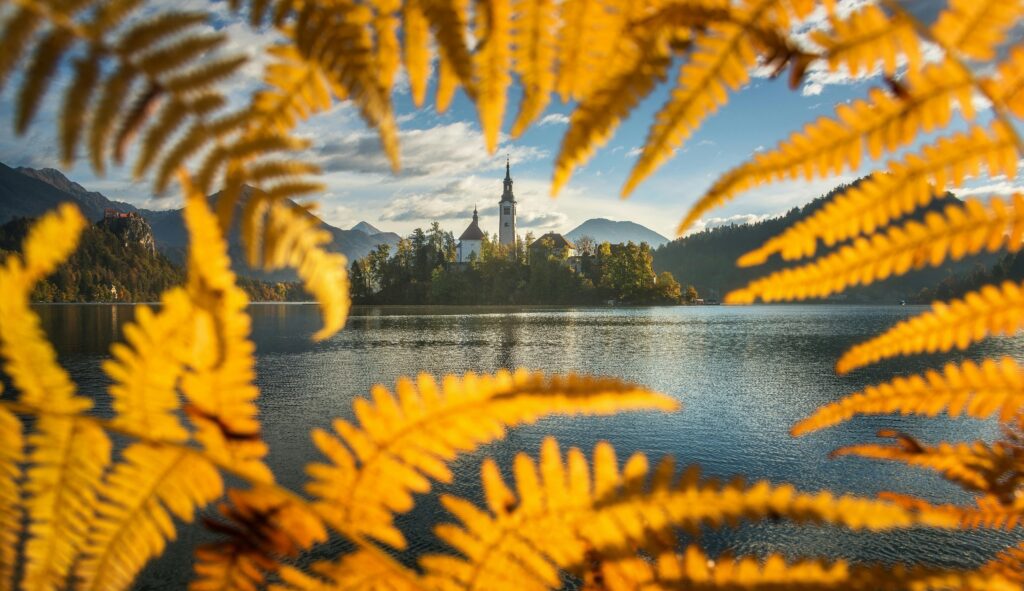
Slovenia is one of Europe’s most stunning and environmentally-conscious destinations. With its lush forests, pristine lakes, and majestic mountains, it’s a haven for travellers seeking green tourism and sustainable experiences. Slovenia is a leader in eco-friendly practices, having been recognised as a top destination for responsible tourism in Europe. Whether you’re exploring the capital, Ljubljana, hiking in Triglav National Park, or enjoying a serene boat ride on Lake Bled, Slovenia provides a wealth of eco-friendly options to ensure your travel has minimal environmental impact.
Here’s an Eco Travel Destination Guide to Slovenia, showcasing sustainable transportation, green accommodations, activities, and tips for minimising your environmental footprint while enjoying this breathtaking country.
Getting to Slovenia: Sustainable Travel Options
By Plane:
Ljubljana Jože Pučnik Airport, Slovenia’s main international gateway, is the most common entry point for travellers. While flying is necessary, there are ways to offset your carbon emissions:
Carbon Offsets: Many airlines offer the option to offset your carbon footprint by investing in environmental projects, such as reforestation or renewable energy initiatives.
Eco-conscious Airports: Ljubljana Airport has committed to reducing its carbon emissions and implementing sustainable energy systems.
By Train:
Slovenia has an excellent train network that connects major cities and regions. Trains are an eco-friendly way to travel, reducing emissions compared to flying or driving. For example, the journey from Venice or Trieste to Ljubljana is scenic and sustainable. The Slovenian Railways system is well-developed and offers comfortable and efficient travel.
Eco-tip: Choose trains as your primary mode of transportation when traveling between cities in Slovenia and neighbouring countries to minimise your carbon footprint.
By Car:
Renting a hybrid or electric vehicle (EV) is a sustainable option for exploring Slovenia at your own pace. Many car rental agencies in Slovenia now offer electric cars for rent. Slovenia also has a growing network of EV charging stations, particularly in cities like Ljubljana and Maribor.
Eco-tip: Plan your route to include charging stations if you rent an electric vehicle and consider public transport for short distances within cities.
Sustainable Transportation in Slovenia
Slovenia offers various eco-friendly transportation options to reduce your environmental impact as you explore this beautiful country.
Public Transportation:
Slovenia has an efficient and affordable public transport system, including buses and trains that connect major cities, towns, and natural attractions. Ljubljana, the capital, also has an excellent bike-sharing program and electric buses for sustainable city transport.
Eco-tip: Use public transport or bike-sharing programs for short trips, especially in cities like Ljubljana, to minimise emissions.
Cycling:
Slovenia is a bike-friendly country, with many cycling trails and dedicated bike paths across the country. Ljubljana has been recognised as a bike-friendly city with extensive cycling infrastructure. You can rent bikes or electric bikes (e-bikes) to explore the capital or venture to rural areas such as Lake Bled and Lake Bohinj.
Eco-tip: Rent bikes from local shops or eco-friendly operators to explore the cities and natural landscapes while reducing your environmental footprint.
Boating on Lake Bled:
Enjoy a traditional wooden pletna boat ride on Lake Bled, an iconic Slovenian destination. The pletna boats are rowed by locals and offer an eco-friendly alternative to motorised boats. Visitors can also rent kayaks or stand-up paddleboards for a more active way to enjoy the lake.
Eco-tip: Opt for human-powered boats like kayaks or traditional rowboats, which leave minimal environmental impact.
Sustainable Accommodations in Slovenia
Slovenia boasts a wide range of eco-friendly accommodations, from luxurious green hotels to sustainable rural stays. Many hotels and guesthouses are committed to reducing their environmental footprint through energy conservation, waste reduction, and responsible sourcing.
1. Eco Resort & Glamping Lakeside (Lake Bled)
Located near Lake Bled, Eco Resort & Glamping offers eco-friendly luxury glamping tents surrounded by nature. The resort is powered by solar panels, practices water conservation, and uses sustainable materials in its design. It’s an ideal place for travellers seeking to enjoy nature while minimising their impact.
2. Hotel Cubo (Ljubljana)
Hotel Cubo is a green hotel in the heart of Ljubljana, focusing on sustainability with energy-efficient systems, low-emission heating, and eco-friendly toiletries. The hotel is committed to reducing waste and promoting responsible tourism practices. It’s an excellent choice for those looking for a blend of comfort and environmental responsibility.
3. Bled Rose Hotel (Lake Bled)
Located on the shores of Lake Bled, Bled Rose Hotel promotes sustainability with energy-saving initiatives, such as LED lighting and solar power. The hotel also supports local farmers and produces its food sustainably, offering guests organic meals with ingredients sourced from nearby farms.
4. Green Rooms Hostel (Ljubljana)
If you prefer budget-friendly eco-lodging, Green Rooms Hostel in Ljubljana is a fantastic choice. This eco-hostel values zero-waste practices, energy conservation, and sustainable food options. It’s a great option for solo travellers or groups looking to stay in a centrally-located, affordable accommodation.
5. The Alpinum Hotel (Ribno)
Near Lake Bled, The Alpinum Hotel is designed with sustainability in mind. The hotel uses eco-friendly building materials, solar energy, and local wood for heating. It’s a serene place to stay, with a commitment to eco-consciousness and a focus on nature.
Sustainable Activities and Attractions in Slovenia
Slovenia offers a range of eco-friendly activities that allow you to connect with nature while reducing your environmental impact.
1. Hiking and Trekking in Triglav National Park
Triglav National Park is the largest national park in Slovenia, offering a wide variety of hiking and trekking routes through the Julian Alps. The park is a UNESCO Biosphere Reserve, and sustainable tourism is a key focus. There are many eco-friendly hiking guides who focus on responsible trekking and respect for the natural environment.
Eco-tip: Stick to designated trails and follow leave-no-trace principles to reduce your impact on the delicate alpine ecosystem.
2. Visit the Škocjan Caves
The Škocjan Caves, a UNESCO World Heritage site, is one of the largest and most significant cave systems in the world. The cave tours are carefully managed to reduce environmental damage, and visitors are encouraged to follow sustainable practices. The caves are part of a larger conservation effort to preserve the delicate underground ecosystem.
3. Cycling the Greenways of Slovenia
Slovenia offers several scenic cycling routes, including the Greenways Project, a series of cycling paths that lead you through picturesque landscapes, historical sites, and eco-friendly villages. The routes are designed to promote sustainable tourism and responsible travel.
4. Wellness and Spa Experiences
Slovenia is known for its thermal spas and wellness centers, many of which emphasize natural treatments and use locally-sourced organic products. You can visit eco-conscious wellness resorts, such as those in the Posavje region, which offer therapeutic treatments while focusing on sustainability and reducing their carbon footprint.
5. Visit the Ljubljanica River and Ljubljana Castle
Take a kayak or canoe ride on the Ljubljanica River or enjoy a walking tour of Ljubljana Castle, which has implemented several green practices, including solar energy and water conservation efforts. The castle also offers a unique view of the city’s commitment to environmental preservation.
Sustainable Dining and Shopping in Slovenia
Slovenia offers a range of sustainable dining and shopping experiences, where you can enjoy local products that support eco-conscious initiatives.
1. Sustainability at Ljubljana’s Central Market
Slovenia’s Central Market in Ljubljana is a great place to buy local, organic produce. Many of the vendors focus on sustainable and ethical farming practices. It’s an excellent spot to purchase souvenirs made from recycled materials or locally sourced products.
2. Organic Dining in Ljubljana
Restaurants like Gostilna As and Atelje focus on organic, seasonal ingredients sourced from local farms and produce. These establishments are part of Slovenia’s growing farm-to-table movement, offering sustainable food that supports local agriculture and reduces the carbon footprint of imported goods.
3. Local Eco-Friendly Shops
Ljubljana has several boutiques and shops that promote eco-conscious fashion, handmade products, and fair-trade goods. From organic cotton clothing to recycled materials used in local crafts, you can shop sustainably while supporting local artisans.
Green Travel Tips for Slovenia
- Use public transportation whenever possible, especially in urban areas, to reduce your carbon footprint.
- Embrace cycling in cities like Ljubljana, where biking infrastructure is well-developed.
- Support local and organic dining experiences to promote sustainable farming and reduce food miles.
- Bring your own reusable bottles and shopping bags to reduce plastic waste.
- Respect nature by following sustainable practices while hiking, cycling, or exploring the countryside.
Slovenia as a Green Destination
Slovenia is an exceptional eco-tourism destination, offering a wealth of natural beauty, rich history, and a commitment to sustainability. From the pristine landscapes of Triglav National Park to the sustainable practices in its cities and villages, Slovenia provides travellers with eco-friendly options for every type of experience. By embracing sustainable travel, you can fully enjoy all that this enchanting country has to offer while minimising your environmental impact and supporting the protection of its natural wonders.

T: Tanzania
Green Travel Guide to Tanzania
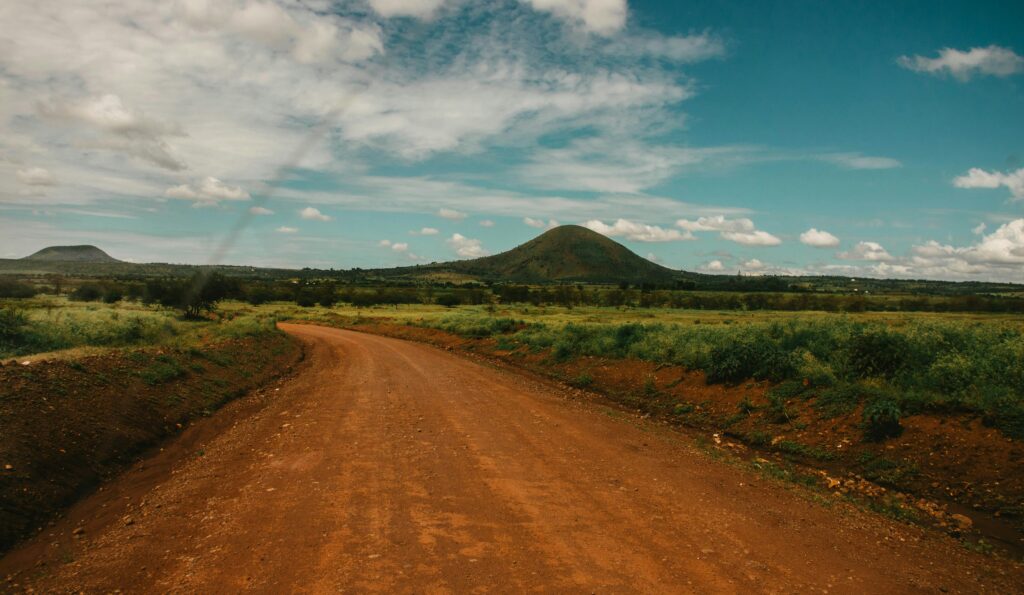
Tanzania, known for its iconic wildlife, breathtaking landscapes, and rich cultural heritage, is also becoming a leader in eco-tourism and sustainable travel. From the world-renowned Serengeti National Park and Mount Kilimanjaro to the idyllic Zanzibar Archipelago, Tanzania offers a range of eco-friendly experiences that allow travellers to immerse themselves in its natural beauty while contributing to conservation and sustainable development.
Here’s a Green Travel Destination Guide to Tanzania, showcasing sustainable transportation, eco-friendly accommodations, activities, and tips for minimising your environmental footprint while exploring the country’s spectacular wildlife and culture.
Getting to Tanzania: Sustainable Travel Options
By Air:
The most common way to reach Tanzania is by air, landing at Julius Nyerere International Airport (Dar es Salaam) or Kilimanjaro International Airport (near Arusha). While flying is the quickest option, many airlines offer carbon offset programs, allowing passengers to offset the emissions associated with their flights by investing in reforestation or renewable energy projects.
Eco-tip: Consider flying with airlines that have a strong environmental policy and offset their carbon emissions, such as KLM or British Airways.
By Train:
For travellers already in East Africa, Tanzania’s Tanzania Railways Corporation offers train services that connect cities like Dar es Salaam, Zanzibar, and Arusha. Trains are more sustainable than air travel and can offer a scenic route through Tanzania’s landscapes.
Eco-tip: For a more sustainable travel experience, consider using train services where possible, especially for shorter regional journeys.
Sustainable Transportation in Tanzania
Tanzania is still developing its sustainable infrastructure, but there are several eco-friendly options for getting around the country.
Public Transportation:
Public buses and minivans, known as daladalas, are the most common form of transport in cities. While they are widely used and affordable, they are not always the most eco-friendly due to high emissions and crowded conditions.
Eco-tip: Opt for private eco-friendly vehicles or small-scale local taxis that promote sustainability and avoid overcrowding.
Bicycles and Walking:
In cities like Zanzibar and Arusha, cycling is becoming more popular, and there are several bike tours available. You can rent bikes to explore the local area or even take eco-cycling tours to explore national parks or rural villages, helping you travel in a more sustainable way.
Eco-tip: Rent electric bikes or sustainable bicycles to explore Tanzania’s natural beauty at a slower pace while minimising your environmental footprint.
Safari Vehicles:
Safari vehicles, typically large 4x4s, are necessary for wildlife exploration in Tanzania’s national parks, but there is an increasing focus on reducing their environmental impact. Many eco-friendly safari companies are adopting hybrid vehicles or electric safari vehicles, which help reduce emissions in sensitive areas.
Eco-tip: Choose eco-conscious safari operators that prioritise sustainability, such as those using hybrid or electric safari vehicles or smaller group tours to minimise the environmental impact.
Sustainable Accommodations in Tanzania
Tanzania offers a range of sustainable lodging options, from luxury eco-lodges to community-run guesthouses that support local development and conservation efforts.
1. Ngorongoro Crater Lodge (Ngorongoro)
This eco-luxury lodge, located near the Ngorongoro Crater, values sustainability with its use of solar energy, water conservation systems, and local materials. It supports the conservation of wildlife in the crater and gives back to the surrounding communities through fair wages and educational initiatives.
2. Greystoke Mahale (Mahale Mountains)
Located on the shores of Lake Tanganyika in the Mahale Mountains National Park, Greystoke Mahale is an exclusive eco-lodge designed to minimise its environmental footprint. The lodge uses solar energy, practices waste management, and focuses on eco-friendly building practices. It also plays a role in protecting the endangered chimpanzees in the park.
3. The Highlands (Ngorongoro)
Located on the edge of the Ngorongoro Conservation Area, The Highlands is a luxury eco-lodge built using sustainable materials and solar power. It also operates on rainwater harvesting and works closely with local communities, ensuring that profits support conservation and local development.
4. Chole Mjini Lodge (Zanzibar)
On the island of Chole, Chole Mjini Lodge is an eco-friendly lodge that offers a serene and sustainable getaway. The lodge uses solar energy, supports local artisans by using handmade furniture and goods, and contributes to the local community through educational and employment opportunities.
5. Lake Duluti Lodge (Arusha)
This lodge near Arusha promotes sustainability by using solar energy, supporting local food production, and encouraging responsible tourism. The lodge has a rainwater harvesting system and a strong focus on the conservation of the nearby Lake Duluti.
Sustainable Activities and Attractions in Tanzania
Tanzania offers several eco-friendly and sustainable activities, ranging from wildlife safaris to hiking and cultural experiences, all designed to reduce environmental impact while showcasing the country’s incredible natural and cultural heritage.
1. Wildlife Safaris in Serengeti National Park
A safari in Serengeti National Park is an unforgettable experience, but choosing an eco-friendly safari operator can make a big difference in reducing your environmental impact. Many safari operators are moving toward hybrid vehicles, small group tours, and low-impact camping to help minimise the effects of tourism on the wildlife and the environment.
Eco-tip: Opt for walking safaris or night safaris, which have less impact on the environment compared to traditional vehicle-based safaris.
2. Hiking Mount Kilimanjaro
Climbing Mount Kilimanjaro is a bucket-list experience for many travellers, and sustainable trekking is encouraged. Operators are working to reduce waste and ensure that climbers leave no trace while maintaining the natural beauty of the mountain. It’s essential to use companies that are certified by the Kilimanjaro National Park and focus on sustainable practices like camping with biodegradable products.
Eco-tip: Ensure the trekking company you choose adheres to Leave No Trace principles and focuses on sustainable waste management.
3. Zanzibar Archipelago – Eco-Tourism and Marine Conservation
Zanzibar is a stunning destination, offering both cultural and ecological experiences. Visitors can engage in eco-friendly diving and snorkeling tours to explore the coral reefs of Mnemba Atoll or enjoy a peaceful boat tour with a focus on marine conservation. Several eco-lodges in Zanzibar are working to preserve the marine ecosystem by engaging in sustainable fishing practices and supporting marine life conservation.
4. Visit the Selous Game Reserve
The Selous Game Reserve is a UNESCO World Heritage site, and many safari operators are working to minimise the environmental footprint of tourism in this pristine wilderness. Some companies use electric-powered boats for safaris along the Rufiji River, reducing the impact on wildlife and the surrounding ecosystem.
Eco-tip: Choose safari operators that support conservation initiatives and focus on sustainable wildlife management and ethical practices.
5. Cultural Tours with Indigenous Communities
Many sustainable travel companies in Tanzania offer cultural experiences that directly benefit local communities. You can visit indigenous groups like the Hadza or Maasai and learn about their traditions and ways of life. These tours not only provide income to the communities but also allow visitors to engage in responsible tourism that respects cultural heritage and supports local development.
Sustainable Dining and Shopping in Tanzania
Tanzania is home to diverse food traditions and local markets, and there are several ways to enjoy sustainable dining and shopping during your visit.
1. Sustainable Dining in Arusha
Restaurants like The Blue Heron and Rivertrees Country Inn in Arusha focus on organic, locally sourced produce and offer menus with dishes made from fresh ingredients grown in nearby villages. They support local farmers and ensure that the food they serve is both delicious and sustainable.
2. Buy Locally Made Products
Supporting local artisans and markets in cities like Dar es Salaam or Zanzibar is a great way to buy eco-friendly souvenirs. Many markets offer handmade products using natural materials, and you can support artisans by buying sustainable textiles, jewellery, and woodwork.
3. Farm-to-Table Dining in Zanzibar
Zanzibar is known for its spices and fresh seafood, and many restaurants there support local, sustainable farming practices by sourcing their ingredients directly from farms on the island. This ensures that the meals are fresh and sustainably produced.
Green Travel Tips for Tanzania
- Offset your carbon emissions when flying to Tanzania by investing in reforestation or clean energy projects.
- Minimise plastic use by carrying a reusable water bottle and shopping bag.
- Support sustainable and ethical safari companies that focus on conservation and work with local communities.
- Respect local cultures and always seek permission before taking photos of people or sacred sites.
- Adhere to Leave No Trace principles, especially when hiking or visiting national parks and reserves.
Tanzania as a Green Destination
Tanzania is a country of immense natural beauty and cultural richness, offering travellers a unique opportunity to explore its stunning landscapes and wildlife sustainably. By choosing eco-friendly accommodations, sustainable transportation options, and responsible tour operators, you can reduce your environmental impact while experiencing all that Tanzania has to offer. Whether you’re climbing Mount Kilimanjaro, going on a wildlife safari in the Serengeti, or enjoying the peaceful beaches of Zanzibar, Tanzania provides countless ways to travel sustainably and contribute to the preservation of its unique ecosystems.

U: Uzbekistan
Green Travel Guide to Uzbekistan

Uzbekistan, a central Asian country, is rich in history, culture, and natural beauty. The country offers a fascinating mix of ancient Silk Road cities, vibrant cultural heritage, and diverse landscapes, from the vast Kyzylkum Desert to the stunning mountains of Fergana Valley. In recent years, Uzbekistan has also been embracing eco-tourism, with an increasing focus on sustainability and responsible travel. Visitors can enjoy eco-friendly experiences while discovering the nation’s ancient sites, such as Samarkand, Bukhara, and Khiva, all while respecting its environmental conservation efforts.
In this Green Travel Destination Guide to Uzbekistan, we highlight sustainable transportation, green accommodations, eco-friendly activities, and practical tips for minimising your environmental footprint while exploring this beautiful country.
Getting to Uzbekistan: Sustainable Travel Options
By Air:
The primary international gateway to Uzbekistan is Tashkent International Airport, with flights connecting travellers from around the world. While flying is necessary for most visitors, many airlines offer carbon offset programs, allowing you to compensate for the carbon emissions associated with your flight by contributing to environmental projects.
Eco-tip: Choose airlines with a strong sustainability track record and consider carbon offset programs offered by major airlines.
By Train:
Uzbekistan is well-connected by a modern and efficient train system, with high-speed trains linking cities like Tashkent, Samarkand, and Bukhara. Traveling by train is a much more sustainable alternative to flying and allows you to enjoy scenic views of the countryside. The Afrosiyob high-speed train offers comfortable and fast connections between major cities.
Eco-tip: Whenever possible, opt for train travel over domestic flights to reduce your carbon footprint while enjoying the scenic views of Uzbekistan’s landscapes.
Sustainable Transportation in Uzbekistan
Uzbekistan is still developing its infrastructure, but travellers can find various ways to travel around the country while minimising their environmental impact.
Public Transportation:
Uzbekistan’s public transport system is affordable, with buses and shared taxis (known as marshrutkas) available in major cities. While these forms of transport can be crowded and less environmentally efficient, they remain a popular and affordable choice for local travel.
Eco-tip: Use local public transport as much as possible in cities to reduce your personal carbon footprint. For shorter distances, walking is a great way to explore and minimises your impact.
Electric Vehicles and Car Hire:
While electric vehicles (EVs) are still relatively rare in Uzbekistan, there is a growing interest in sustainable mobility. Some rental agencies are starting to offer electric cars, and cities like Tashkent are working to develop more EV charging stations.
Eco-tip: If you’re renting a car, opt for an electric or hybrid vehicle and plan your routes with EV charging stations in mind.
Cycling:
Cycling is becoming a more popular way to explore Uzbekistan’s cities and rural areas. Tashkent has bike lanes, and bike tours are available to explore the capital’s vibrant streets, historic sites, and parks. In cities like Samarkand and Bukhara, cycling is an eco-friendly way to visit UNESCO World Heritage sites.
Eco-tip: Rent a bike to explore cities or rural areas, reducing emissions and enjoying a more personal connection to the surroundings.
Sustainable Accommodations in Uzbekistan
Uzbekistan offers various eco-friendly accommodations, ranging from luxury eco-lodges to budget-friendly guesthouses. Many hotels are starting to embrace sustainable practices, such as energy conservation, waste management, and supporting local communities.
1. Lotte City Hotel Tashkent Palace
This luxury hotel in the capital, Tashkent, is committed to reducing its environmental impact. The hotel has implemented energy-saving systems, uses LED lighting, and has a water conservation program in place. It also supports local artisans and promotes cultural sustainability.
2. Hotel Shodlik Palace (Tashkent)
A great eco-conscious option for those staying in Tashkent, Hotel Shodlik Palace focuses on sustainability through waste reduction, energy efficiency, and the promotion of local food and culture. It supports eco-friendly tourism by sourcing locally produced goods and services.
3. Caravan Serai Hotel (Bukhara)
Located in the heart of Bukhara, Caravan Serai Hotel offers a unique eco-friendly stay. The hotel is built using traditional earth materials and follows sustainable building practices. It also focuses on using locally sourced, organic ingredients in its meals, promoting sustainable agriculture.
4. Samarkand International Hotel
In Samarkand, one of Uzbekistan’s most iconic cities, the Samarkand International Hotel is working to reduce its environmental footprint. The hotel uses solar energy, promotes recycling, and offers guests the opportunity to learn about local conservation efforts.
5. Chorsu Boutique Hotel (Tashkent)
Chorsu Boutique Hotel in Tashkent is a great eco-friendly option, with a focus on sustainable architecture, recycling, and promoting local culture. The hotel has also partnered with local farms to provide organic and seasonal produce to its guests.
Sustainable Activities and Attractions in Uzbekistan
Uzbekistan’s unique landscapes, ancient cities, and cultural sites offer many eco-friendly activities for travellers seeking a more sustainable experience.
1. Explore the Historic Silk Road Cities (Samarkand, Bukhara, Khiva)
The cities of Samarkand, Bukhara, and Khiva are steeped in history and culture. While visiting these UNESCO World Heritage sites, be sure to take walking tours or bike tours to minimise your environmental impact. Many tours are designed to emphasise sustainable tourism practices, focusing on the preservation of heritage and responsible interaction with local communities.
Eco-tip: Support local guides who are passionate about cultural conservation and responsible tourism in these historical cities.
2. Visit the Aral Sea
The Aral Sea region offers a sobering yet important lesson in environmental degradation. The sea has shrunk dramatically due to human activity, but efforts are underway to restore its ecosystem. Visiting the Aral Sea region supports sustainable tourism initiatives aimed at raising awareness about environmental conservation and the importance of water management.
3. Hiking in the Chimgan Mountains
The Chimgan Mountains offer fantastic eco-friendly trekking opportunities. Hiking in the Tian Shan mountain range allows visitors to explore Uzbekistan’s natural beauty while minimising their environmental impact. There are eco-conscious trekking companies that offer sustainable hiking tours, ensuring that visitors leave no trace while enjoying the landscape.
Eco-tip: Book eco-friendly treks that focus on Leave No Trace principles and responsible tourism.
4. Visit the Nurata Mountains and the Desert
The Nurata Mountains and the Kyzylkum Desert are lesser-known natural wonders in Uzbekistan. Here, travellers can experience desert eco-tourism, including visits to camel herders, eco-friendly campsites, and cultural exchanges with local nomadic communities. These areas are perfect for stargazing and eco-conscious desert excursions.
5. Bukhara and the Kyzylkum Desert
Visit the Kyzylkum Desert surrounding Bukhara for eco-friendly camel tours and traditional desert camping experiences. Local eco-tourism operators focus on sustainable practices, such as reducing waste and promoting eco-friendly travel in the desert environment.
Sustainable Dining and Shopping in Uzbekistan
Uzbekistan offers a rich culinary tradition based on locally sourced ingredients. Travellers can support sustainability by choosing restaurants and markets that focus on organic and locally grown food.
1. Samarkand’s Green Market
The Green Market in Samarkand is a great place to explore local food culture and buy organic produce and handcrafted goods. Shopping at this market supports local farmers and artisans while promoting a more sustainable lifestyle.
2. Farm-to-Table Dining in Tashkent
Restaurants in Tashkent like Dakhma and Besh Qozon emphasize locally sourced, organic ingredients and focus on sustainable farming practices. Dining at such establishments not only supports sustainable agriculture but also helps reduce food miles.
3. Local Crafts and Sustainable Souvenirs
Uzbekistan is known for its rich tradition of handmade crafts, including silk, ceramics, and carpets. Purchasing handmade goods directly from local artisans supports sustainable craftsmanship and local communities. Look for goods made from natural materials and sustainable production methods.
Green Travel Tips for Uzbekistan
- Support sustainable tourism operators by choosing eco-conscious tours and activities that focus on preserving local culture and the environment.
- Minimise plastic waste by carrying reusable water bottles and shopping bags.
- Use public transportation or bicycles to reduce your carbon footprint, especially in cities.
- Choose eco-friendly accommodations that promote energy efficiency, water conservation, and waste reduction.
- Respect local customs and traditions, especially in rural areas, and support community-based tourism initiatives.
Uzbekistan as a Green Destination
Uzbekistan is a country with immense historical significance and natural beauty, and it’s slowly becoming a beacon for sustainable travel in Central Asia. By choosing eco-friendly accommodations, using sustainable transport options, and supporting local businesses, travellers can enjoy an authentic and environmentally conscious experience. Whether you’re wandering through ancient Silk Road cities, hiking in the mountains, or experiencing the desert, Uzbekistan offers a wealth of opportunities to embrace responsible tourism while immersing yourself in the country’s vibrant culture and heritage.

